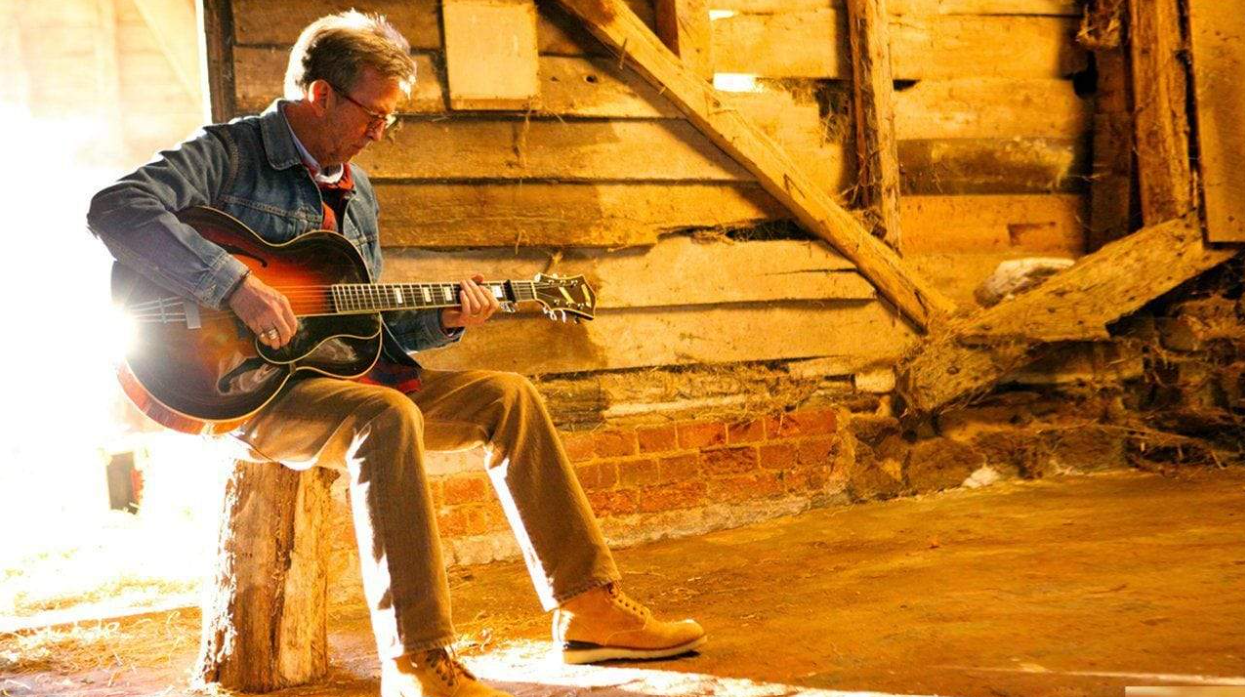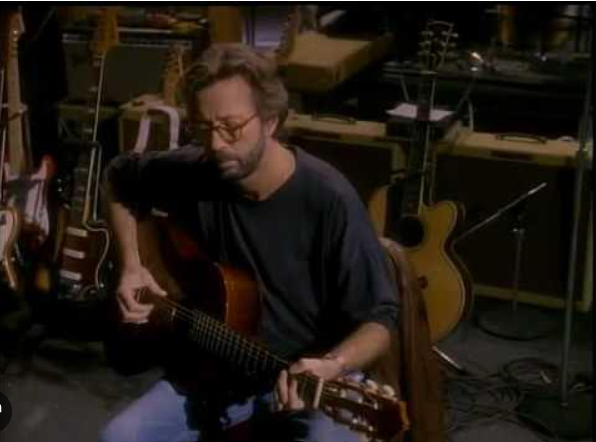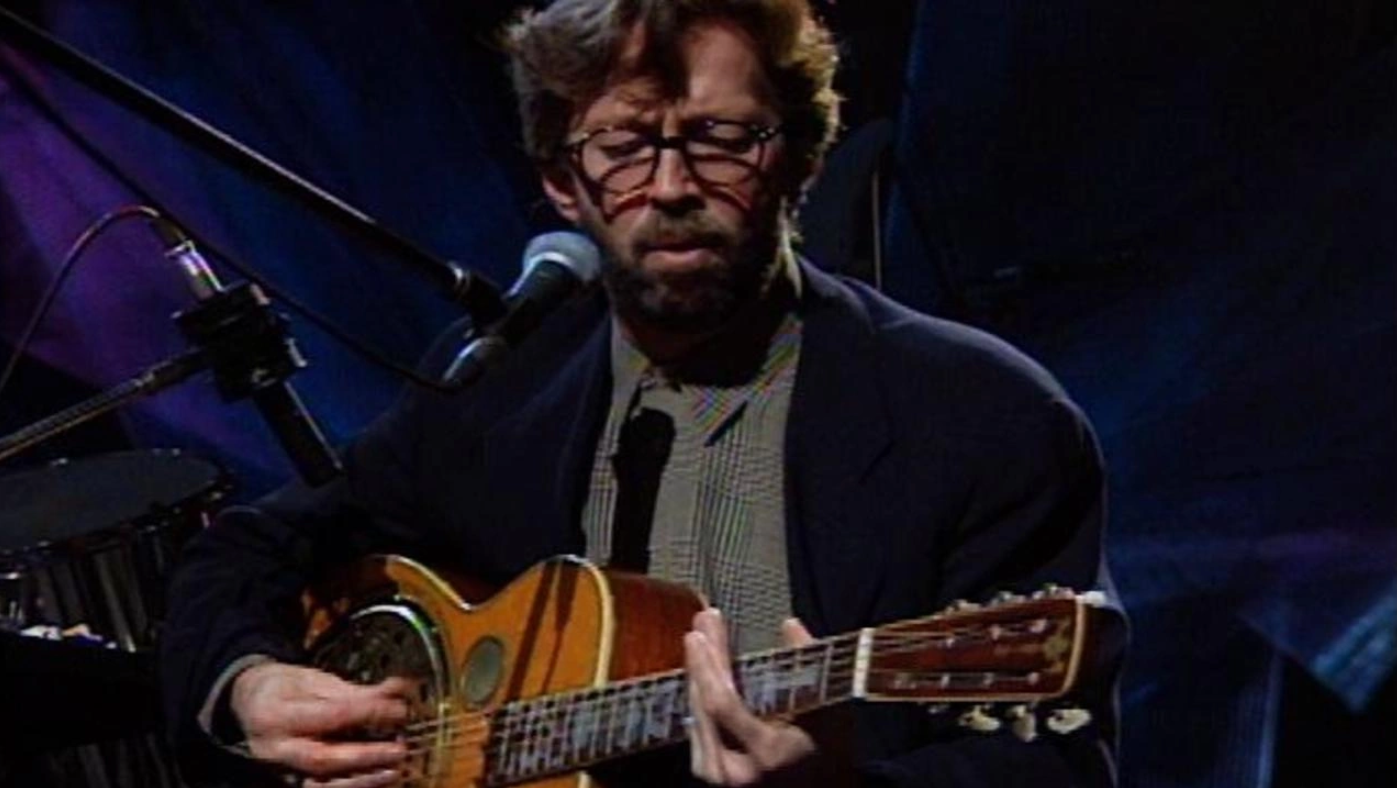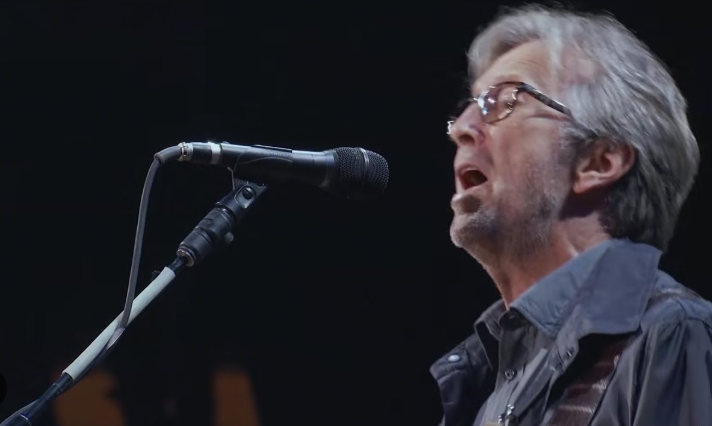The Depths of Reflection: Exploring "My Father's Eyes" by Eric Clapton
(watch the video below)
Music has the remarkable ability to convey emotions and experiences in a way that words alone cannot. Among the myriad of songs that have left an indelible mark on listeners' hearts, "My Father's Eyes" by Eric Clapton stands as a poignant testament to the complexities of relationships, the search for identity, and the enduring power of love. Released in 1998 as part of his album "Pilgrim," this song delves into themes of loss, longing, and redemption, drawing listeners into a deeply personal journey through the lens of Clapton's own experiences. With its soul-stirring melody and heartfelt lyrics, "My Father's Eyes" continues to resonate with audiences around the world, inviting them to explore the depths of human emotion and introspection.
To truly understand the essence of "My Father's Eyes," it is essential to delve into the personal history that inspired its creation. Eric Clapton, a legendary guitarist and singer-songwriter, has never shied away from infusing his music with elements of his own life story. Born in 1945 in Surrey, England, Clapton experienced a tumultuous childhood marked by feelings of abandonment and longing for familial connection. Raised by his grandparents, he grew up believing that his mother was his sister, a revelation that would deeply influence his sense of identity in later years.
The absence of his father loomed large in Clapton's life, leaving an emotional void that would reverberate through his music. Despite achieving immense success as a musician, including his tenure with bands like The Yardbirds, Cream, and Derek and the Dominos, Clapton continued to grapple with feelings of inadequacy and a yearning for paternal affection. These emotions came to the forefront following the tragic death of his four-year-old son, Conor, in 1991, a devastating loss that spurred Clapton to confront his own vulnerabilities and search for healing.

It was against this backdrop of personal turmoil and introspection that Clapton penned "My Father's Eyes." The song serves as a poignant reflection on his quest for understanding and reconciliation, both with his absent father and the memory of his beloved son. Through its lyrics and melody, Clapton bares his soul to the listener, inviting them to share in his journey of self-discovery and emotional catharsis.
At its core, "My Father's Eyes" explores the universal themes of longing, forgiveness, and the quest for identity. The title itself carries multiple layers of meaning, serving as a metaphor for the search for paternal acceptance and the desire to see oneself reflected in the eyes of a loved one. For Clapton, the song represents a deeply personal exploration of his own familial relationships and the impact they have had on his sense of self.
Throughout the song, Clapton grapples with feelings of inadequacy and regret, lamenting the mistakes of the past while yearning for a sense of closure and redemption. The opening lines, "Sailing down behind the sun, waiting for my prince to come," evoke a sense of anticipation and longing, setting the stage for the emotional journey that follows. As the song progresses, Clapton reflects on the legacy of his father, acknowledging the ways in which his absence has shaped his own identity.
One of the most powerful aspects of "My Father's Eyes" is its ability to evoke a sense of empathy and understanding in the listener. Clapton's vulnerability and raw honesty shine through in every note, inviting audiences to reflect on their own experiences of loss and longing. Whether grappling with the pain of a broken relationship or the absence of a loved one, the song speaks to the universal human experience of seeking connection and reconciliation in the face of adversity.

Musically, "My Father's Eyes" is characterized by its haunting melody and soulful instrumentation. Clapton's distinctive guitar playing is on full display, weaving intricate patterns of sound that complement the song's introspective lyrics. The subdued arrangement, featuring acoustic guitars and gentle percussion, serves to accentuate the emotional weight of the song, allowing Clapton's voice to take center stage.
Throughout the song, Clapton's vocal delivery is imbued with a sense of longing and vulnerability, conveying the depth of emotion contained within the lyrics. His soulful voice carries the listener through the highs and lows of his journey, from moments of quiet introspection to soaring expressions of hope and redemption. The chorus, with its repeated refrain of "Still yearning, though I've found my way home," encapsulates the central theme of the song, highlighting the ongoing search for acceptance and belonging.
In addition to its emotive vocal performance, "My Father's Eyes" is distinguished by its masterful songwriting. Clapton's lyrics are imbued with rich imagery and poetic nuance, allowing listeners to connect with the narrative on a deeply personal level. From the evocative opening lines to the poignant final verses, the song unfolds like a vivid tapestry of emotion, drawing the listener into its heartfelt exploration of love, loss, and redemption.
Since its release, "My Father's Eyes" has left an indelible mark on listeners around the world, earning critical acclaim and enduring popularity. The song's universal themes and heartfelt sincerity have resonated with audiences of all ages, cementing its status as a timeless classic in Clapton's extensive catalog. From its inclusion in film soundtracks to its frequent appearances in live performances, "My Father's Eyes" continues to captivate and inspire new generations of music lovers.

Beyond its commercial success, the song holds a special significance for Clapton personally, serving as a cathartic outlet for his emotions and a testament to the healing power of music. In interviews, Clapton has spoken candidly about the profound impact that "My Father's Eyes" has had on his own journey of self-discovery, describing it as a deeply personal reflection on his relationships with both his father and his son.
"My Father's Eyes" stands as a testament to the enduring power of music to transcend boundaries and touch the depths of the human soul. Through its heartfelt lyrics, soul-stirring melody, and poignant vocal performance, Eric Clapton invites listeners on a deeply personal journey of introspection and emotional catharsis. From its origins in Clapton's own life story to its universal themes of longing, forgiveness, and redemption, the song continues to resonate with audiences around the world, reminding us of the profound connections that unite us all as human beings. In the final analysis, "My Father's Eyes" stands as a timeless classic that speaks to the enduring legacy of one of music's greatest artists.
Video
Lyrics
Let's sing along with the lyrics !
Sailing down behind the sun
Waiting for my prince to come
Praying for the healing rain
To restore my soul again
Just a toe rag on the run
How did I get here?
What have I done?
When will all my hopes arise?
How will I know him?
When I look in my father's eyes
My father's eyes
When I look in my father's eyes (look into my father's eyes)
My father's eyes
Then the light begins to shine
And I hear those ancient lullabies
And as I watch this seedling grow
Feel my heart start to overflow
Where do I find the words to say?
How do I teach him?
What do we play?
Bit by bit, I've realized
That's when I need them
That's when I need my father's eyes
My father's eyes
That's when I need my father's eyes (look into my father's eyes)
My father's eyes (yeah)
Then the jagged edge appears
Through the distant clouds of tears
I'm like a bridge that was washed away
My foundations were made of clay
As my soul slides down to die
How could I lose him?
What did I try?
Bit by bit, I've realized
That he was here with me
And I looked into my father's eyes
My father's eyes
I looked into my father's eyes (look into my father's eyes)
My father's eyes
My father's eyes (look into my father's eyes)
My father's eyes
I looked into my father's eyes (looked into my father's eyes)
My father's eyes
(Look into my father's eyes)
(Look into my father's eyes, yeah, yeah)



